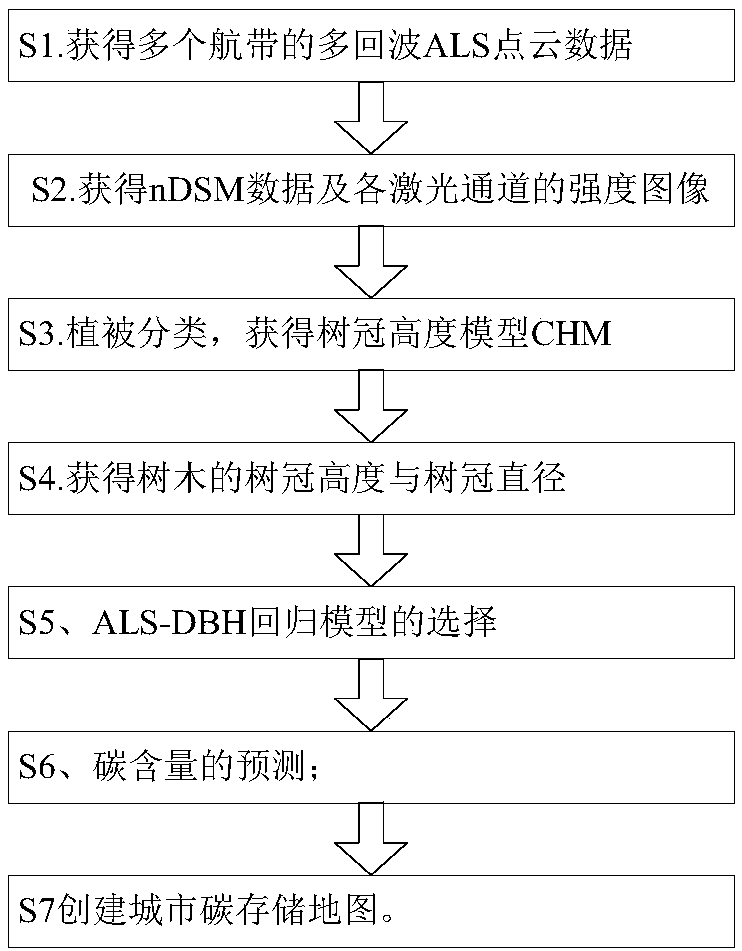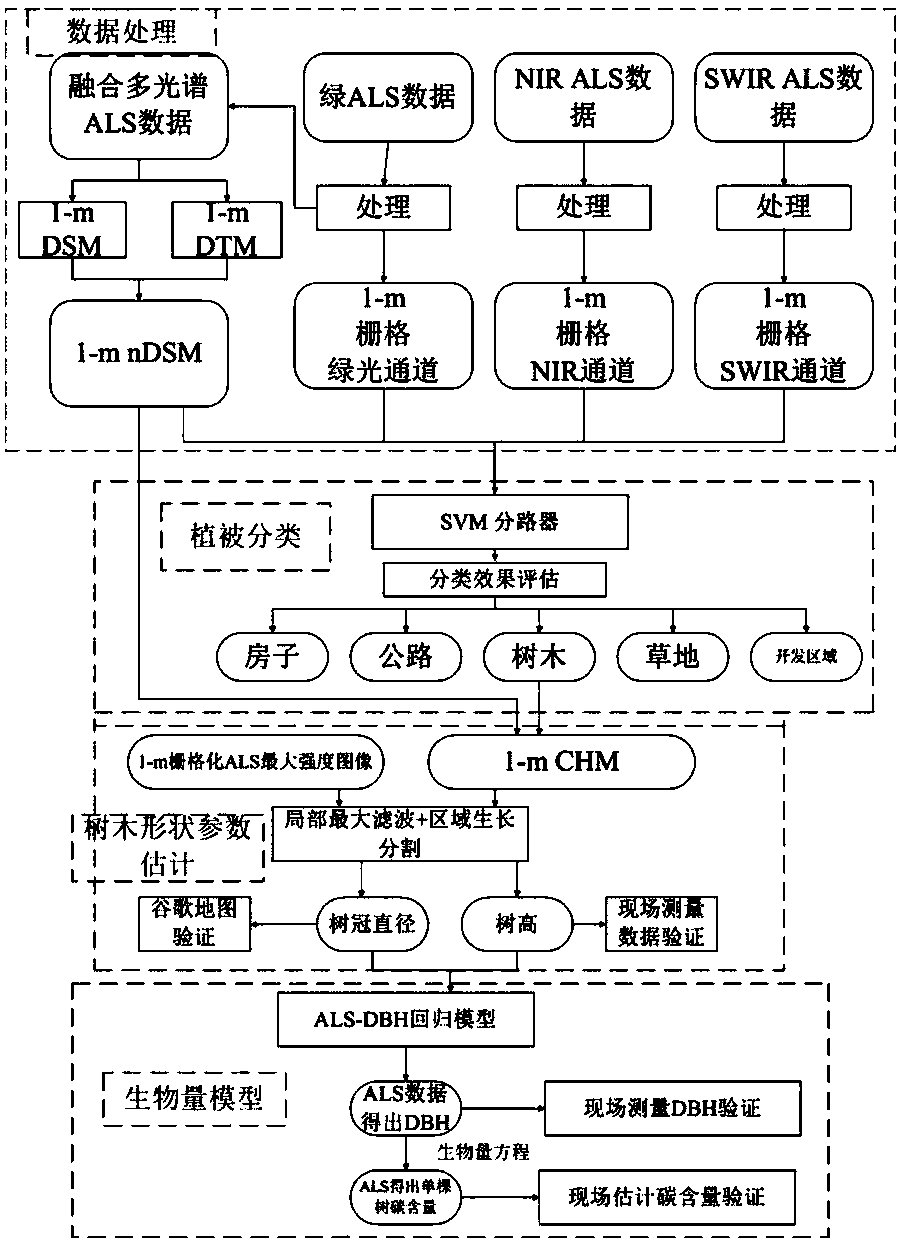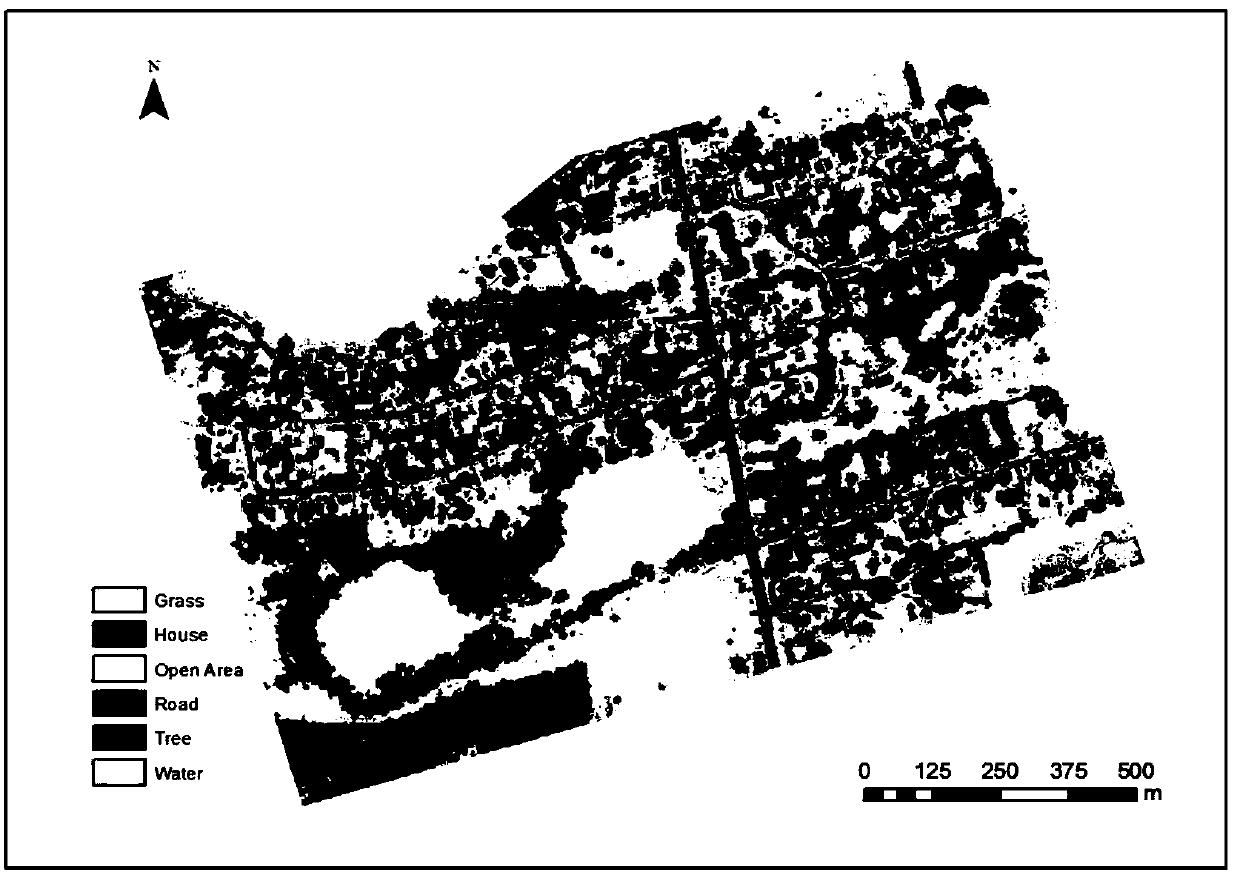Urban-tree carbon content estimation method based on multi-echo airborne-laser-scanning data
An airborne laser scanning, multi-echo technology, applied in image data processing, re-radiation of electromagnetic waves, radio wave measurement systems, etc., can solve problems such as huge labor and time
- Summary
- Abstract
- Description
- Claims
- Application Information
AI Technical Summary
Problems solved by technology
Method used
Image
Examples
Embodiment
[0079] like figure 1 and figure 2 As shown, the carbon content estimation method of urban trees based on multi-echo airborne laser scanning data includes the following steps:
[0080] S1. Obtain multi-echo ALS point cloud data of multiple airways;
[0081] S2. Obtain nDSM data and intensity images of each laser channel;
[0082] S3, vegetation classification, obtain the canopy height model CHM;
[0083] S4, obtain crown height and crown diameter of trees;
[0084] S5, selection of ALS-DBH regression model;
[0085] S6. Prediction of carbon content;
[0086] S7 creates maps of urban carbon storage.
[0087] The wavelengths of the green laser, the near-infrared laser and the short-wave infrared laser in step S1 are 532 nm, 1064 nm and 1550 nm, respectively.
[0088] Step S2 specifically includes:
[0089] S21. Denoising the multi-echo ALS point cloud data of each airway respectively:
[0090] First, use an intensity filter to remove points with intensities outside 3σ t...
PUM
 Login to View More
Login to View More Abstract
Description
Claims
Application Information
 Login to View More
Login to View More - R&D
- Intellectual Property
- Life Sciences
- Materials
- Tech Scout
- Unparalleled Data Quality
- Higher Quality Content
- 60% Fewer Hallucinations
Browse by: Latest US Patents, China's latest patents, Technical Efficacy Thesaurus, Application Domain, Technology Topic, Popular Technical Reports.
© 2025 PatSnap. All rights reserved.Legal|Privacy policy|Modern Slavery Act Transparency Statement|Sitemap|About US| Contact US: help@patsnap.com



